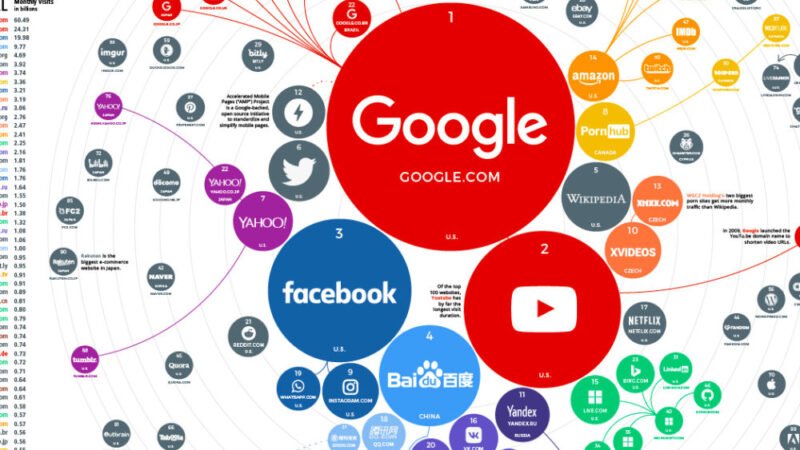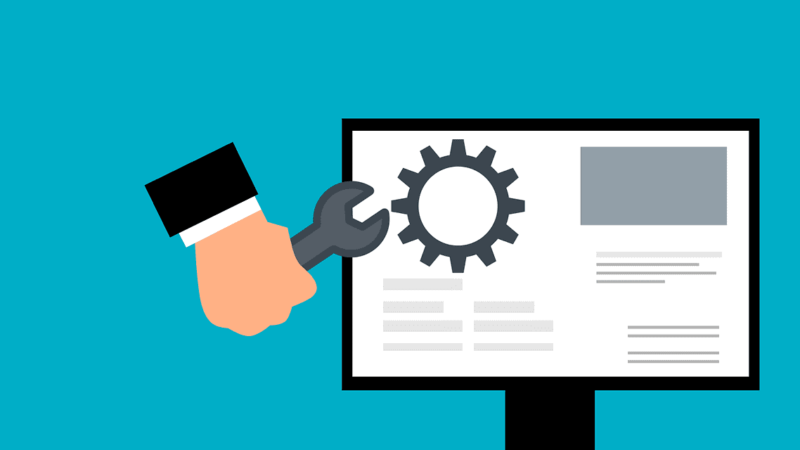Every day, millions of business owners use different products and applications to share financial and customer information with others. These applications are often key business tools for today’s accounting and business professionals; but, as your business grows, having disconnected blocks of data will slow down that growth.
Don’t make this mistake.
What do you think if we told you that moving financial and customer information from different products and applications to a place in the cloud makes sense, that it will allow your sales and accounting teams to gain productivity and efficiency?
What do you think if we tell you that connecting your administration department and your sales department in the cloud will give you peace of mind and allow all staff to achieve more results and with more agility?
With a cloud accounting solution, you will be able to dominate the different information flows of your company and see things as they are, not as you would like to see them.
You will then be able to use this information about the business you just accessed to answer an even more important question: what does my customer really want?
Here are the three warning signs to look out for if you want to know when it’s time to move your crucial financial and customer information to the cloud.
We’ll show you what exactly it means to manage your most important information with a cloud accounting solution for you and your business.
And finally, we will explain the 9 annoyances of having blocks of data that you will not miss once you start using a real-time accounting solution.
article content
- 1 Three crucial warning signs that disconnected blocks of data are holding your business back
- 2 Finding a new home for your most valuable information
- 3 9 worries you will forget when you have your customer data consolidated
- 4 Conclusion: The future of accounting is here, in real time, in the cloud
Three crucial warning signs that disconnected blocks of data are holding your business back
We are going to talk about the use of different products and applications to manage your customer data and how this is slowing down the growth of your business.
These products and applications can be useful management and collaboration tools for business, financial, and customer information, but as your business expands, your needs will become more complex.
As a young family outgrowing their first home, there will come a time when your business needs to move key customer and financial information to one place that everyone can access securely, anywhere, anytime.
Only then can you and your team focus on what’s really important: satisfying your customers and expanding your business.
In this chapter, we’ll show you the three warning signs to watch for if you want to figure out when it makes sense to move your financial and customer information to a new home.
WARNING SIGN 1: YOUR COMPUTER IS WASTING TIME TRYING TO CONNECT DATA FROM DIFFERENT PRODUCTS AND APPLICATIONS
No manager wants to make important business decisions based on limited or outdated information; however, many spend hours analyzing financial and business information presented through various products and applications.
Using multiple products and apps limits the ability of business and finance teams to update information and connect with each other, and also increases the chances of errors in your team’s work.
For example, if there is no central place to store this data, individuals or teams report their information separately and may even base their reports on outdated data.
This disjointed workflow makes it difficult for you to compile the information you need to make informed management decisions about the future of your business.
WARNING SIGN 2: YOUR BUSINESS AND FINANCIAL TEAMS SPEND HOURS WORKING ON WHAT THEY SHOULD NOT
Using different products and apps and storing customer information in multiple places also means your team has to enter key customer information in different places.
This way of working takes up quite a bit of time at the end of the month or quarter, with many business and finance teams saying this is time they could spend on more profitable tasks such as responding to business enquiries, brainstorming new sales promotions or preparing accounts. of the main clients.
If your team is spending time manually entering information like expenses or performing other administrative tasks, your business is wasting valuable billable hours on unproductive tasks.
Can you afford to let your best team members spend their day on unproductive tasks?
WARNING SIGN 3: YOUR TEAM IS HARD TO COLLABORATE ON THE LATEST CUSTOMER INFORMATION
As the manager of a growing business, you struggle to tackle inefficient business processes, but have you considered how customer information is shared within your team?
For example, a law firm might use a product to compile financial data regarding its clients and accounts receivable. And employees at this firm could use another app to collaborate on up-to-date information during their workday.
This means that multiple employees are using and modifying multiple versions of customer information in different places.
Even if these employees don’t make mistakes and remember to update every product or app, sharing the latest customer information internally is still a big challenge for
your team. Working on multiple versions of customer information is an inefficient way to collaborate, and not one used by today’s sprawling businesses.
Finding a new home for your most valuable information
Many of today’s apps and products will continue to play a role in your business, but no matter how mastered they are or how creative you can be with them, they have their limits. And your team will run into these limits sooner if you rely on different products and applications to manage important customer information.
The bottom line is this: If your important customer information resides in multiple places, you’re holding back your business growth. Managers who do so are unknowingly paying a price in the form of lost time, limited access to information, and ultimately lost sales.
In this chapter we explain why moving your business and financial information to a cloud accounting solution like Sage Live makes sense for your business.
Improves the quality of financial forecasts
Preparing a sales forecast based on information stored in different places has some limitations. Reflect on whether you know:
- How many leads, presentations, or quotes you need to generate a sale.
- The number of leads it takes to reach a goal.
- The effectiveness of a specific commercial campaign and the response of the different markets or segments.
Storing your financial information in a cloud accounting solution will help you see how many leads your business has earned and track the revenue your business generates. It will also offer more information about the customers’ purchase history.
Make decisions based on more correct commercial information
If different departments in the company can only access data from their part of the business, or if they are using the wrong data, the productivity and efficiency of your teams will decrease. Information from multiple
applications provides insight at a point in time, and unless everything is up-to-date, this information soon becomes outdated.
For example, forecasts for the next quarter won’t update when you change the date of a potential sale about to close. This is compounded when management and sales teams use different versions of a customer’s information.
That’s where a cloud accounting solution can come in handy. In the cloud, the information is always up to date, always in real time: this means that you will have an always up-to-date source of truth that reflects changes in sales and expected income.
Check if your business reports are realistic
Sales people are naturally optimistic, and this optimism can trickle down into their interpretation of sales reports.
As a manager, you may trust the opinion of your sales team, but sometimes you have to be able to interpret the underlying logic in their charts and figures.
That’s why it pays to have powerful financial dashboards that you can check at a glance and use to temper your teams’ optimism with some realism.
Protect your most important business assets
Today’s products and applications are often driven by personal choice. In many cases, only core users understand the ins and outs of a complicated product or application and how to use it to manage customer data.
What happens if one of these key members of your company leaves?
Your knowledge will also be lost and the information you leave behind will not be relevant or usable, or may even have to be recreated.
If you want to protect your business from the effects of staff turnover, it makes sense to keep customer, sales, and financial information in a central, secure, and accessible place, like in the cloud.
This way you won’t lose important information or have to reinvent the wheel every time a representative, accountant or manager leaves. Even better, when your company grows you will have a system in place so that everyone has what they need.
Access more reliable business parameters
Information prepared from disconnected blocks of data cannot give a sales manager the parameters he needs to build solid sales forecasts to rely on. Among these parameters are the coefficient between potential clients and orders, the success rate of the proposals presented and the budgets.
Tracking these parameters through a cloud solution allows managers to apply a bottom-up or activity-based approach to sales forecasts.
This means forecasts are based on target activity levels, such as the number of leads and sales presentations, the number of offers and quotes, and historically demonstrated conversion rates.
Eliminate unexpected setbacks
You shouldn’t have to spend hours preparing a report so you can monitor expenses, see how sales are performing, and determine if revenue forecasts are on target.
And you shouldn’t have to wait until the end of the month to get reliable and up-to-date sales data.
You should be able to see all this information at a glance and be able to identify priority customers, opportunities, customers at risk, etc.
There is nothing more alarming than an unexpected setback against a sales target. A cloud accounting solution will not prevent these setbacks, but they will no longer catch you by surprise.
Save time
Managers who track business and financial information through dozens of applications lose valuable work hours. They are spending time gathering information and preparing reports that could be spent on more productive tasks.
With a cloud accounting solution, you’ll be able to view as much or client information as you want before any meeting. And you won’t need a salesperson or a member of your accounting team to tell you how your company is doing.
A cloud accounting solution allows you to save time and preserve a few hours of your day that you can dedicate to managing key projects and initiatives of the entire company.
Increase the productivity of your staff
When your employees collaborate thanks to information in the cloud, your entire company works smarter
For example, a member of the sales team might receive a call from a customer and then update information about the customer from the office. Later, if another salesperson is out and about to meet this customer, he can view the information from his mobile device.
Both employees can collaborate on a client from anywhere, avoid duplicating each other’s work, and be more productive.
Rely on true logging and audit controls
When you started, it was okay if you ran your business using multiple products, because it wasn’t too hard to find where your customer information was.
However, as your business expands, managing financial information becomes more complex. A growing team will find it difficult to unify information stored in many different places. Disconnected blocks of data cannot provide the peace of mind that custom-built logging and audit controls provide.
A cloud accounting solution brings together your client information and ensures your notes and decisions are tied to the numbers for a complete financial picture.
Improve business processes
Customer information is constantly flowing through your company.
When a customer requests a quote, makes a purchase, orders shipping, and pays an invoice, their information is passed from one team or department to the next.
Managing this information consistently is a challenge. With a cloud accounting solution, your business can set up how certain financial information is automatically shared
between sales and accounting so both departments know where customers are in their billing cycles.
These departments or teams can use this information to decide what to do before contacting a customer. Plus, they can save time by setting up recurring bills.
A company that controls information about its customers is better positioned to achieve its goals.
Improve profitability across the business
A 2014 IDG report found that companies with more effective data grew 35% faster. It is easier to identify sales patterns and cross-sell opportunities if you have information about the volume and value of transactions in your company.
You can identify churn and take action to stop it before you lose business. And you can turn key performance data into easy-to-understand reports and identify opportunities to drive growth for your business.
For example, if you know there is a delay in your current stock, your sales teams can focus on selling other products and services that are not affected by this delay. In the meantime, you can focus on improving order fulfillment rates across the company.
Together, you and your commercial teams will grow the business.
Try to sell the right products to the right people
If you have adequate customer data, you can analyze sales reports in real time and decide what kind of products and services to promote. Your sales team can then use this information to cross-sell relevant products to existing customers.
Or, a sales agent can use it to determine if they should try to make more value sales after a customer buys your product or service.
Using this information, you will be able to find the right products and services for customer requests.
And you can offer them what they want.
9 worries you will forget when you have your customer data consolidated
If you are already using software in the cloud, you already know how productive and efficient you can be thanks to the power of the cloud.
The question is: do you remember what it was like to use different products, applications and even paper reports to manage your customer and financial information?
If you still don’t use cloud software to manage your business and financial information, don’t worry.
In this chapter, we explain 9 things you won’t miss about working with disconnected data as soon as you move your valuable financial and customer information to a cloud accounting solution.
1. Outdated financial and customer information
Have you ever tried to combine information from different sources only to find out later that it is not up to date? Keeping information in one place – in the cloud – means it’s always up to date.
2. Worry about backups
The only thing worse than out-of-date information in an application is the loss of critical information. When your data is in the cloud, backup is always guaranteed.
3. Wasting time with updates and patches
As an accountant, it’s a pain to mess around with technical updates and patches. Luckily, this is all done automatically in the cloud, so you can focus on your real work.
4. Make decisions using outdated information
Because you have access to the latest financial and customer information, you don’t have to wait for an email with the latest data, but can make decisions and accelerate your business growth today.
5. Access your data
When an important member of your knowledgeable accounting team goes home, or worse, on vacation, can you still access their information? If financial and customer information is stored in the cloud, you and your teams can.
6. Connect your apps (securely) to each other
If you and your team use different applications, securely managing customer data requires a lot of work in itself. However, by keeping key customer information in one place, in the cloud, you will save time and avoid technical difficulties.
7. Unpleasant surprises
It’s hard to keep track of business-critical information if notifications come from multiple sources. When your financial information is managed in the cloud, you can see what’s happening
in real time and even set up notifications on a site to get immediate updates.
8. Wondering why your team has a hard time collaborating
Before the cloud, business owners and managers had to spend time making sure sales people were talking to accounting people. Now all your employees can collaborate using a single solution and won’t have to spend time searching dozens of products and apps for the latest sales reports or customer information.
9. Ask you if your reports are correct
The newest products and apps are only as smart as the person creating the underlying formulas, often requiring numerous updates and bug fixes. When your team uses cloud software with a premium global accounting engine, these formulas are already tried and tested.
Conclusion: The future of accounting is here, in real time, in the cloud
It’s time to find a new home for your business-critical customer information.
By moving business and accounting information from the many different apps and products your business uses into a cloud accounting solution, you’ll reduce business errors and increase the productivity of your teams.
You’ll also protect key business data and ensure your sales and accounting teams collaborate on the latest information. And you will have a solution that will adapt to the growth of your business.
The best of all?
Connecting administration with sales will give you the peace of mind that comes from making business decisions based on the latest information.
Like a family moving from their initial small home to a larger one, after your business adopts a cloud accounting solution, you’ll remember the days when your business lived with just disconnected customer data and wonder how you ever did. you fixed them







